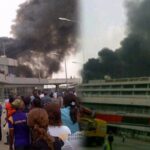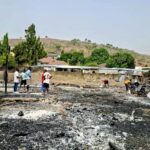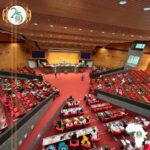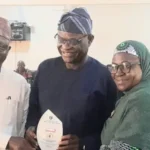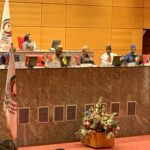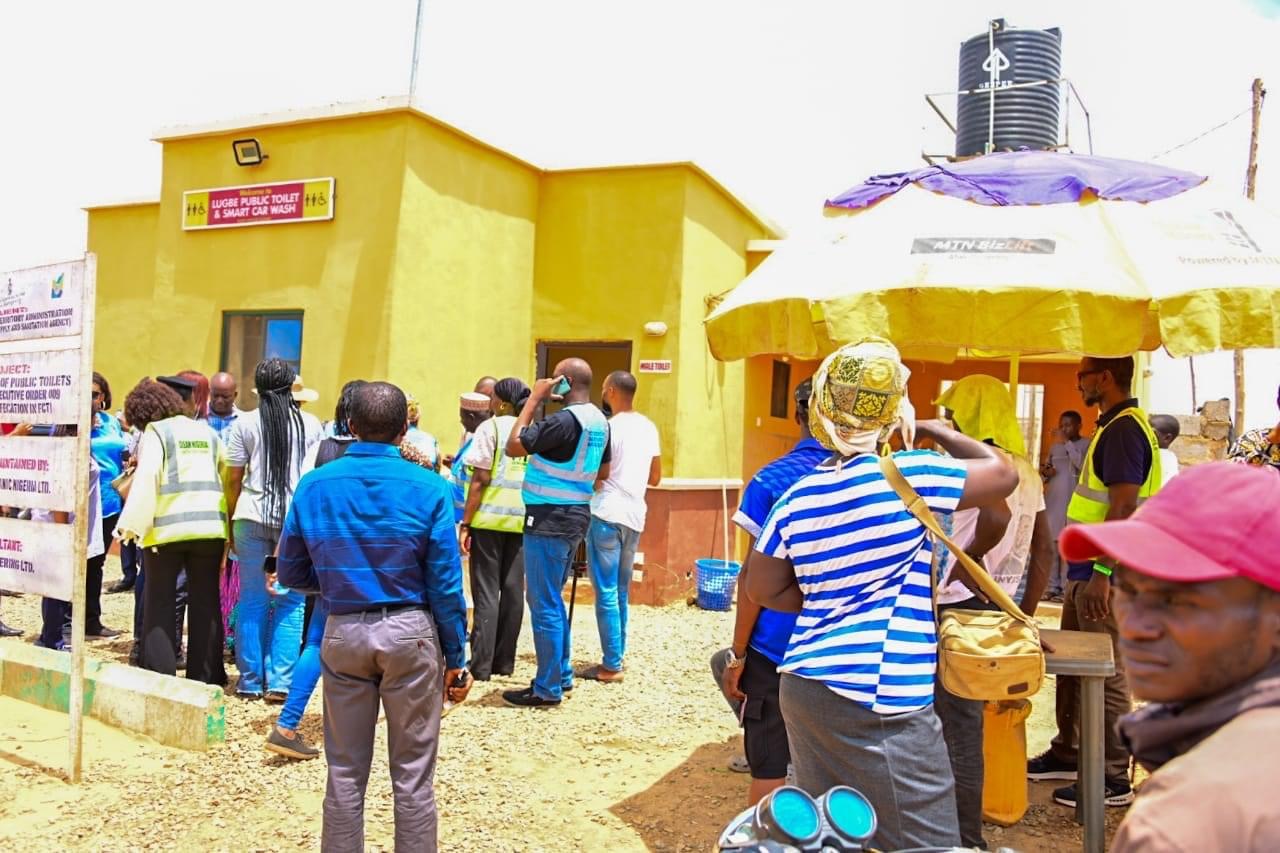By Tosin Kolade
The FCT Rural Water Supply and Sanitation Agency (RUWASSA), is constructing 91 public toilets in motor parks, markets and other public places in the territory.
Alhaji Sani Karu, the agency’s Head of Media and Publicity, told the News Agency of Nigeria (NAN), on Thursday that out of the total number, 31 toilets had been completed, while construction of the rest 60 was ongoing.
He said the decision to construct the facilities was taken after a data revealed that 30 per cent of FCT residents defecated openly, saying construction of public toilets was necessary to prevent health hazard in the territory.
He said that the FCT had also begun the implementation of the National Roadmap to Ending Open Defecation by 2025.
‘’Currently, no area council in the FCT is among the 105 Open Defecation Free (ODF) Local Government Areas (LGAs) in the country,’’ he said.
According to him, issues of public toilet suitability and locations are being addressed by the administration, saying partnership with critical stakeholders will prevent the reoccurrence of demolition.
“Although we are focused on the city centre, we have had instances of public toilets demolished by the Development Control Office in Apo, Wuse, Kubwa due to land contravention.
“The FCT Minister and the permanent secretary have been briefed and all issues are under consideration, now, all allocations for public toilet construction are streamlined, no agency will raise any objections again,” he said.
NAN reports that Dr Mohammed Dan-Hassan, the Executive Director, FCT RUWASSA, had said that 10,000 public toilets would be constructed in strategic locations across the territory from 2022 to 2025.
According to Dan-Hassan, President Muhammadu Buhari in 2018 declared a State of Emergency in the Water, Sanitation and Hygiene (WASH) sector, saying this was followed by the Executive Order 009.
“Currently, we have 105 LGAs out of the 774 that have been verified and certified ODF, however, the six area councils of the FCT are not among these,” he said.
Dan-Hassan said the agency, in collaboration with development partners and the Federal Ministry of Water Resources and Sanitation decided to make Kwali area council an ODF model for others to follow.
He said the agency plans to replicate the successes to be achieved in other area councils, adding that it would be an opportunity for learning from all challenges.
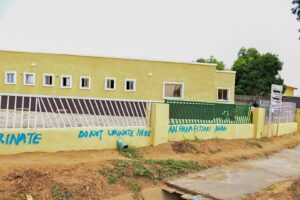 NAN quotes the Permanent Secretary, FCT Administration, Dr Olusade Adesola, as saying that efforts were on to solve the problems of securing appropriate spaces for the construction of public toilets in the FCT.
NAN quotes the Permanent Secretary, FCT Administration, Dr Olusade Adesola, as saying that efforts were on to solve the problems of securing appropriate spaces for the construction of public toilets in the FCT.
“We went out to identify locations for constructing public toilets, some of them turned out to offend the communities; some offended the master plan, resulting to sanctions, protests and petitions in the communities and in the office.
“However, we are being strategic, we now have the service-wide team that will identify sites and advise, once these sites are clear, we know that we now have an arrangement that is permanent,” he said.
Adesola said that the administration was driven by the goal of not just achieving an ODF area council in Kwali, but in the entire FCT.
Mrs Chizoma Opara, the National Coordinator, Clean Nigeria Campaign (CNC) Secretariat, said awareness on the toilets constructed was low, hence the need to carry out sensitisation toward educating the public of their existence, importance and use.
She said that the FCT administration had keyed into the open defecation-free programme with the promise to provide 10,000 toilets in the nation’s capital.
“We actually thought that it was necessary to look around these facilities and then also to create awareness around it, because we know that ending open defecation requires that facilities be put in places.
“Such public places like markets, parks, schools and all that, a lot of these facilities are springing up without many people not aware that these are toilets, so it became necessary that we need to create that awareness in the FCT,” he said.
The executive order 009 targets an end to open defecation practice in the country by 2025, following Nigeria’s ranking as the second country with the highest number of people practising open defecation globally.
According to the 2021 Water Sanitation and Hygiene (WASH) Normal Routine Mapping report, 30 per cent of FCT residents practice open defecation, while 48 million people practice it nationwide. (NAN)
Edited by Ali Baba-Inuwa
====



